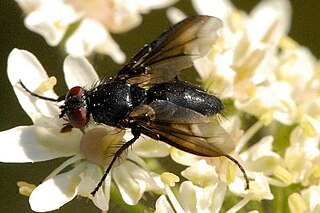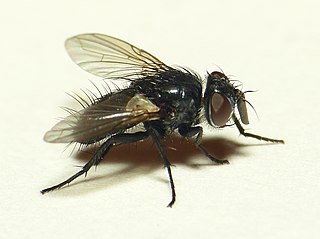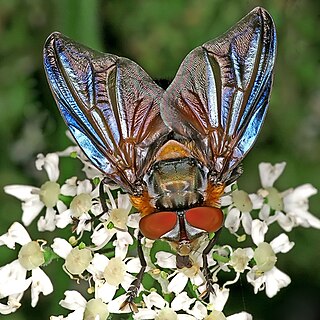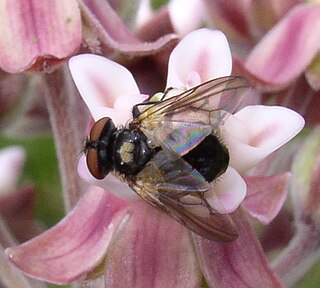
Acemya is a genus of flies in the family Tachinidae.
Allothelaira is a genus of flies in the family Tachinidae.

Nilea is a genus of flies in the family Tachinidae.
Prosopochaeta is a genus of flies in the family Tachinidae.

Voriini is a tribe of flies in the family Tachinidae. More junior homonyms exist of Wagneria than any other animal genus name.

Dexiinae is a subfamily of flies in the family Tachinidae.

Dexiini is a tribe of flies in the family Tachinidae.

Exoristinae is a subfamily of flies in the family Tachinidae. Most species are parasitoids of caterpillars.

Blondeliini is a tribe of parasitic flies in the family Tachinidae. Larvae are parasitoids of other insects, mostly beetles and caterpillars. Although nearly cosmopolitan, its greatest diversity is in the New World and especially in South America.

Eryciini is a tribe of flies in the family Tachinidae.

Goniini is a tribe of parasitic flies in the family Tachinidae. Members of Goniini are distinguished from other Tachinidae by laying small "microtype" eggs that hatch only after being ingested by a host.

Phasiinae is a subfamily of flies in the family Tachinidae. Except for the small tribe Strongygastrini members of this subfamily attack only Heteroptera.

Leucostomatini is a tribe of flies in the family Tachinidae, found worldwide.

Phasiini is a tribe of flies in the family Tachinidae. As a result of phylogenetic research, most members of this tribe were transferred to other tribes in the subfamily, leaving only the two genera Elomya and Phasia.

Ernestiini is a tribe of flies in the family Tachinidae.

Tachininae is a subfamily of flies in the family Tachinidae.

Minthoini is a tribe of flies in the family Tachinidae.

Tachinini is a tribe of flies in the family Tachinidae.

Polideini is a tribe of bristle flies in the family Tachinidae. The tribe is unusual for its diversity of hosts, including spiders, scorpions, and centipedes in addition to the usual insect larvae.

Rutiliini is a tribe of flies in the family Tachinidae.















